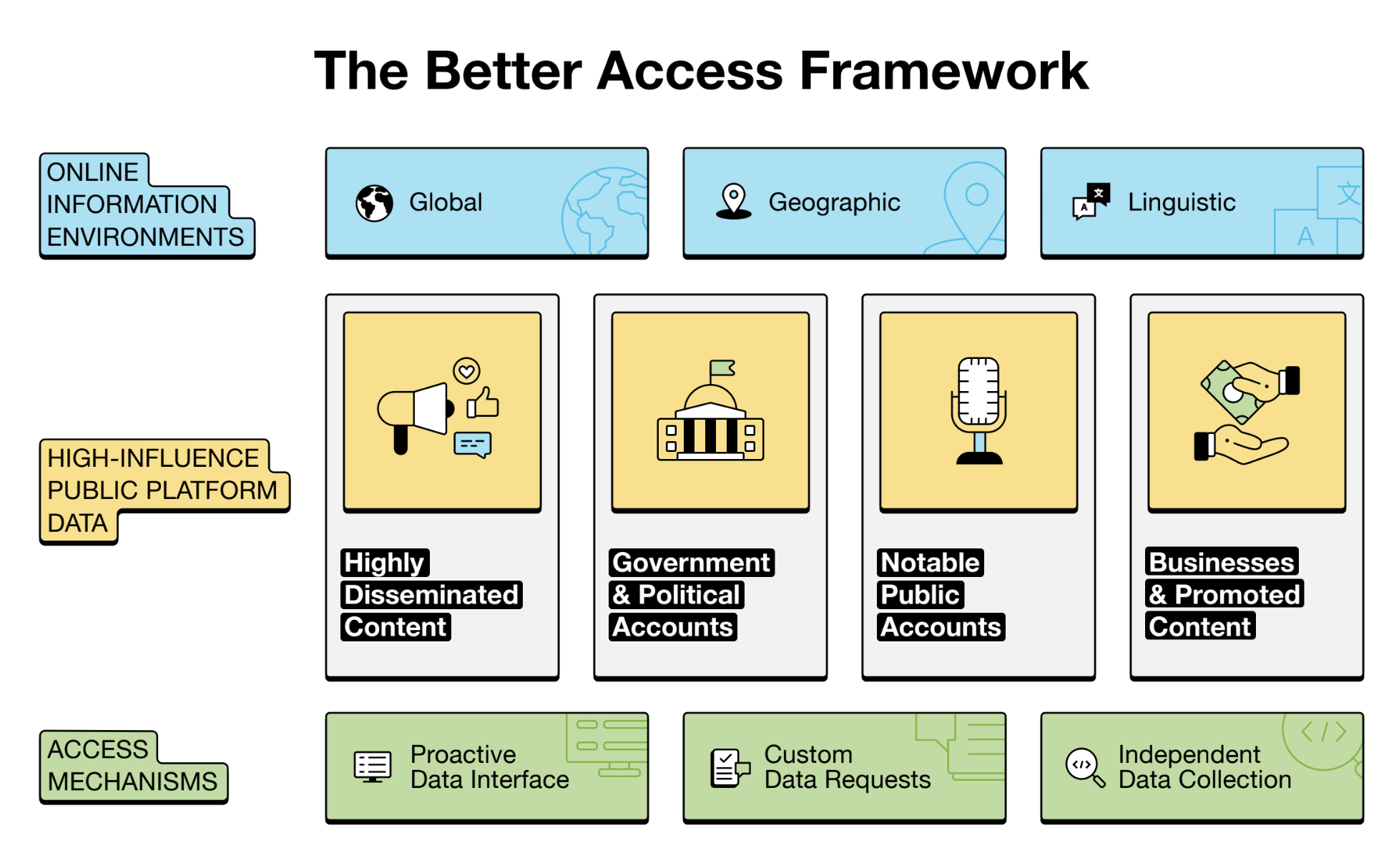A Framework for Accessing High-Influence Public Platform Data
Online platforms and services shape what we know, how we connect, and who gets heard. From elections and public health to commerce and conflict, platforms are now indispensable infrastructure for civic life. Their influence is vast, and so is the need to understand them.
As critical conversations publicly unfold on digital platforms, the ability to study these posts and content at scale has steadily diminished. Tools like Facebook’s CrowdTangle – which once offered researchers, journalists, and civil society a window into public online discourse – have disappeared. Meta, Reddit, and X have restricted data access tools that were once widely available, and researchers have faced threats of litigation for accessing public platform data.
Platforms restrict researcher access while public data is increasingly monetized for advertisers, data brokers, and training artificial intelligence (AI) systems. This imbalance – where companies profit while independent researchers are left in the dark – undermines transparency, limits free expression, and weakens oversight.
That is the reason for developing Better Access, a baseline framework for independent access to public platform data: the content, data, and information posted to platforms that anyone can access.
Published by the Knight-Georgetown Institute (KGI), this framework is the product of KGI’s Expert Working Group (EWG) on Public Platform Data, a group of leaders from research, civil society, and journalism.
The Better Access Framework
The Better Access framework offers a roadmap for expanding access to high-influence public platform data: the narrow slice of public platform data that has the greatest impact on civic life due to its reach, source, or role in shaping what people see online.
Public platform data does not all carry the same weight. Some accounts and content have far more influence than others. The Better Access framework focuses on the subset of public posts, accounts, and interactions that matter most for shaping public discourse.
Better Access defines the kinds of high-influence public platform data that researchers should be able to ethically use in their work. This definition sets a floor, not a ceiling.





